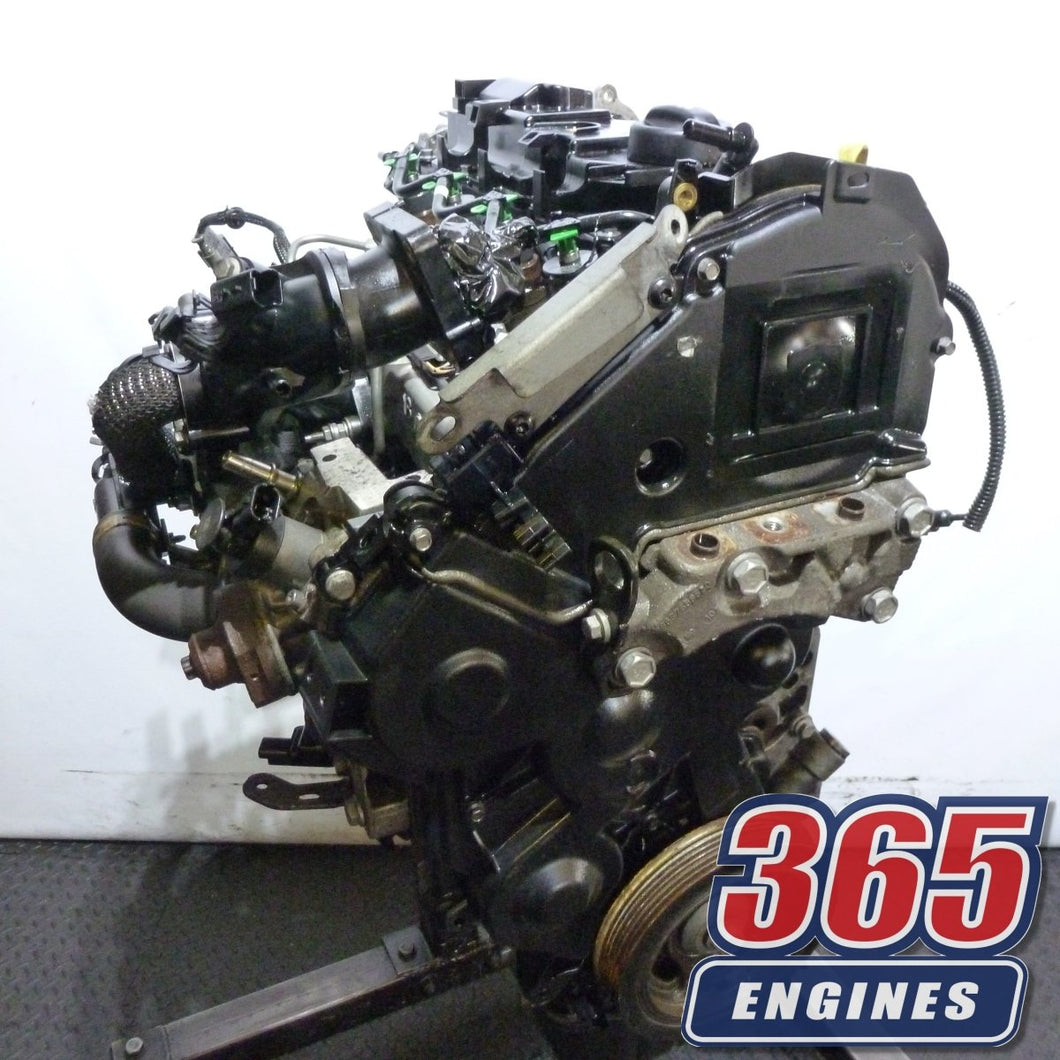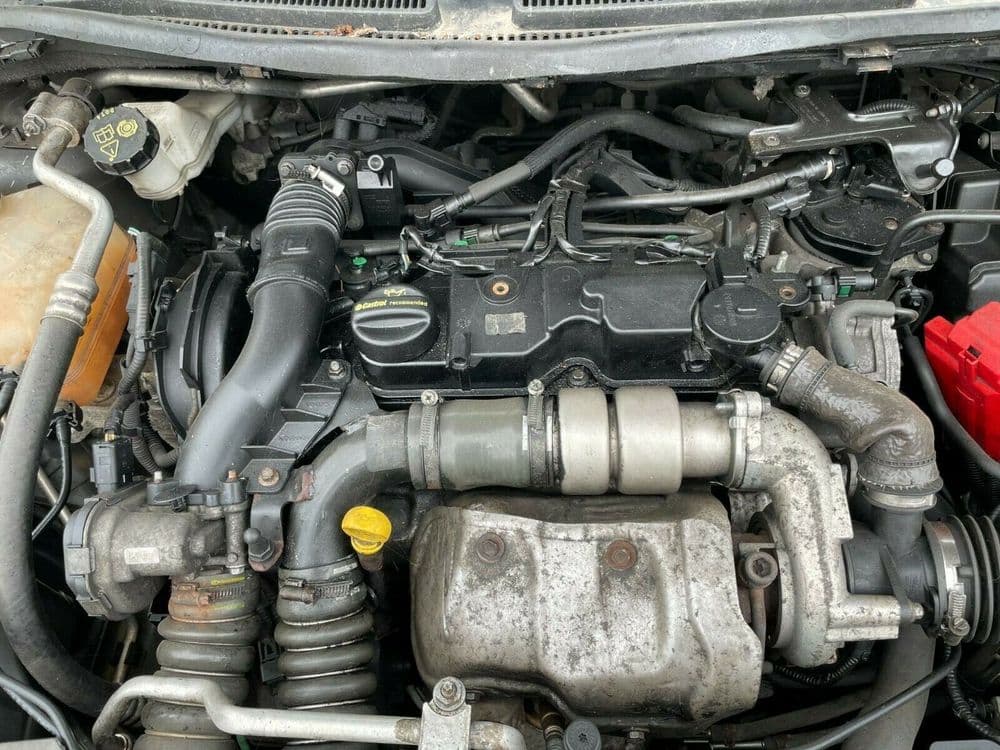Expert Tips for Optimizing Your Ford Fiesta Engine Efficiency
Expert Tips for Optimizing Your Ford Fiesta Engine Efficiency
Blog Article
The Future of Engines: Innovations Driving Sustainable Power Solutions
As the automobile industry browses the crucial shift in the direction of sustainability, the future of engines is increasingly defined by groundbreaking innovations. Electric engine developments, alongside encouraging growths in hydrogen gas cells and biofuels, are reshaping the landscape of power remedies. The appearance of hybrid systems even more complicates this evolution, providing both obstacles and possibilities to reduce exhausts properly. Paired with the integration of synthetic knowledge in engine style, these technological strides increase vital inquiries about their lasting practicality and effect on standard paradigms. What might this indicate for the market and customers alike?
Electric Engine Advancement
The development of electric engine developments indicates a pivotal change in the aerospace and auto sectors, driven by the immediate requirement for sustainable choices to fossil fuels. This transition is defined by considerable improvements in battery modern technology, power electronics, and electrical motor design, which jointly boost the performance and performance of electric engines.
Recent advancements have actually caused the creation of lighter, much more energy-dense batteries, such as lithium-silicon and solid-state batteries, which promise longer ranges and shorter charging times. Furthermore, enhancements in electric motor efficiency, such as using permanent magnets and progressed cooling down systems, allow electric engines to run effectively under varying conditions. These enhancements not just improve automobile performance but likewise add to a decrease in overall power intake.
Moreover, the integration of sophisticated software program formulas has enhanced energy monitoring in electrical automobiles, permitting regenerative braking and anticipating charging strategies. As manufacturers progressively embrace electric propulsion, the aerospace and vehicle markets are witnessing a standard shift in the direction of greener technologies. This advancement not only meets regulative needs but also straightens with customer choices for eco-friendly transport solutions, solidifying electrical engines as a keystone of future lasting movement.
Improvements in Biofuels
As the aerospace and automotive sectors increasingly prioritize sustainable energy sources, improvements in biofuels emerge as a complementary option to electrical engines. Biofuels, stemmed from organic materials such as crops, waste, and algae, offer a cutting-edge opportunity for minimizing greenhouse gas emissions and reliance on fossil fuels.
Recent research study has focused on improving the efficiency and sustainability of biofuel manufacturing. Second-generation biofuels make use of non-food feedstocks, minimizing competitors with food supply and decreasing ecological impact. Moreover, advancements in synthetic biology have enabled the engineering of microorganisms to produce biofuels better, resulting in greater returns and lower manufacturing expenses.
Additionally, the growth of drop-in biofuels permits smooth assimilation into existing infrastructure, making it possible for a smoother change for markets commonly based on fossil gas. ford fiesta engine. These fuels can be used in present engines without modifications, promoting their fostering across various markets
Investments in biofuel technology, along with encouraging plans, are important to drive innovation and scalability. As the international neighborhood seeks to battle environment adjustment, biofuels supply a practical, immediate solution that lines up with the overarching goal of sustainability in transportation and aviation.
Hydrogen Fuel Cell Modern Technology
An expanding number of business and researchers are exploring hydrogen fuel cell innovation as a sensible alternative to standard source of power in transportation and power systems. This modern technology converts chemical power from hydrogen right into electrical power with an electrochemical reaction, with water as the only result, making it an eco-friendly option.
The core of hydrogen gas cells is the fuel cell stack, where hydrogen particles are split into electrons and protons. The circulation of electrons produces electrical power, while protons relocate through a membrane layer to incorporate with oxygen from the air, developing water. This procedure leads to high performance and low discharges, placing hydrogen fuel cells as a crucial player in the shift to sustainable energy.
Substantial developments have actually been made in enhancing the durability and efficiency of gas cells, along with minimizing costs pop over to these guys with cutting-edge manufacturing strategies. Furthermore, the growth of hydrogen production methods, such as electrolysis powered by renewable energy sources, enhances the sustainability of the total system. As infrastructure for hydrogen refueling expands and manufacturing approaches come to be a lot more effective, hydrogen gas cell technology holds fantastic pledge for decarbonizing various sectors, including durable transportation and stationary power generation.
Hybrid Systems and Their Effect
Hybrid systems represent a substantial development in sustainable engine modern technology, combining typical interior burning engines with electric propulsion to optimize energy efficiency and decrease exhausts (ford fiesta engine). This twin approach enables lorries to make use of both power resources, allowing greater flexibility in power intake and reducing dependence on nonrenewable fuel sources

In addition to browse around this web-site ecological advantages, crossbreed systems use consumers a sensible transition in the direction of totally electrical automobiles. They reduce variety anxiousness by combining the comfort of fuel with the advantages of electrical propulsion, making them an eye-catching alternative for a wider target market.
The Duty of AI in Engine Design
Leveraging advanced formulas and artificial intelligence strategies, the automotive industry is progressively incorporating expert system (AI) into engine layout processes. AI improves the performance and efficiency of layout by analyzing large datasets to identify optimal configurations and performance parameters. This capacity enables designers to mimic different operating conditions and anticipate engine actions under several scenarios, significantly lowering the time and cost associated with typical prototyping methods.
Additionally, AI helps with the development of sophisticated materials and burning processes customized for sustainability. By enhancing gas effectiveness and reducing exhausts, AI-driven styles straighten with global efforts focused on lowering the carbon footprint of automotive engines. Maker discovering formulas can likewise anticipate upkeep needs, resulting in improved dependability and longevity of engine visit this page elements.
Additionally, AI is crucial in the combination of electrification technologies, such as hybrid systems, where it can optimize battery administration and energy recuperation procedures. As the sector relocates in the direction of even more sustainable power services, the duty of AI in engine style comes to be increasingly essential, driving advancement and improving the efficiency of future engines. Ultimately, the cooperation in between AI and engine design proclaims a new era of smarter, cleaner, and a lot more efficient automobile modern technologies.

Conclusion
In conclusion, the future of engines is being formed by a convergence of innovative innovations that prioritize sustainability. Electric engine advancements, biofuel developments, hydrogen fuel cells, and hybrid systems collectively contribute to a significant reduction in emissions and environmental influence.
Electric engine developments, together with promising developments in hydrogen fuel cells and biofuels, are reshaping the landscape of power services. In addition, enhancements in electric motor efficiency, such as the use of permanent magnets and advanced cooling systems, make it possible for electrical engines to run efficiently under varying problems. By enhancing fuel efficiency and decreasing discharges, AI-driven layouts straighten with global efforts aimed at decreasing the carbon footprint of vehicle engines. As the sector relocates in the direction of more sustainable power options, the function of AI in engine style comes to be significantly essential, driving technology and boosting the efficiency of future engines. Electric engine innovations, biofuel advancements, hydrogen gas cells, and crossbreed systems collectively contribute to a considerable reduction in discharges and environmental influence.
Report this page